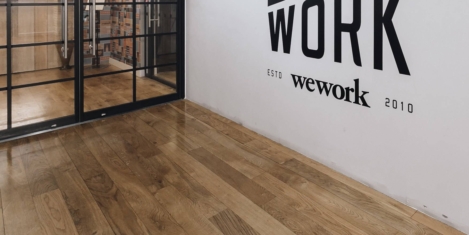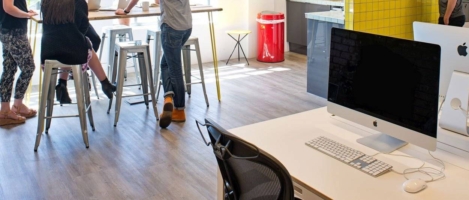August 25, 2015
Flexible working and coworking are disrupting property markets worldwide 0
 Coworking space and the growth of flexible are already having a major disruptive effect on commercial property markets worldwide, according to a study from real estate trade association CoreNet Global. The survey of members representing a diverse range of sectors found that the two most disruptive trends in the market over the short to medium term are flexible working environments (64 percent) and new technology (64 percent). The report, which has been issued to CoreNet members ahead of the organisation’s 2015 EMEA Summit which will take place in London in September, claims that coworking spaces are capitalising on these trends to have a major disruptive effect on local property markets and are particularly attractive to occupiers from specific sectors such as those working in financial technology.
Coworking space and the growth of flexible are already having a major disruptive effect on commercial property markets worldwide, according to a study from real estate trade association CoreNet Global. The survey of members representing a diverse range of sectors found that the two most disruptive trends in the market over the short to medium term are flexible working environments (64 percent) and new technology (64 percent). The report, which has been issued to CoreNet members ahead of the organisation’s 2015 EMEA Summit which will take place in London in September, claims that coworking spaces are capitalising on these trends to have a major disruptive effect on local property markets and are particularly attractive to occupiers from specific sectors such as those working in financial technology.
































August 18, 2015
That story about sexist air conditioning systems…roundly debunked 0
by Mark Eltringham • Comment, Facilities management, Wellbeing, Workplace
The main story of the silly season so far has been that one about the inherent sexism of air conditioning systems from a week or two back. Based on a study published in the esoteric journal Nature Climate Change, it appeared that standards for heating and ventilation in building systems were founded on the metabolic rate of an average man which suggested women were toiling away in unconducive, if not exactly unbearable, conditions. This was a compelling tale picked up worldwide by major media outlets including The New Yorker and The Daily Telegraph. There were only two problems with it all. Firstly, the original study was extremely flimsy, based on a tiny sample and ignorant of some basic facts. Secondly the science behind it has now been roundly rejected by ASHRAE, the main US body responsible for informing debate on such matters.
(more…)